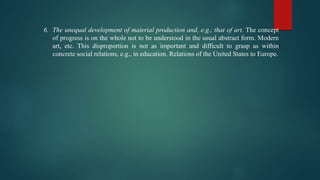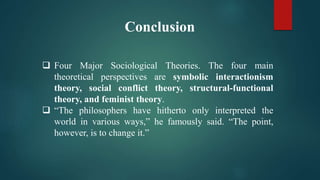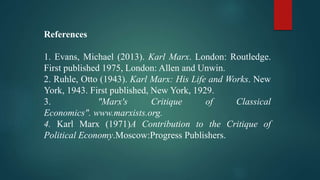Karl Marx was a German philosopher, economist, historian, and socialist revolutionary in the 19th century. He is best known for his theories about capitalism and communism. Some of Marx's most influential written works include The Communist Manifesto, Capital, and A Contribution to the Critique of Political Economy. In these works, Marx critiques capitalism and private property, and lays out his materialist conception of history and ideas about societal development through class conflict and struggle.

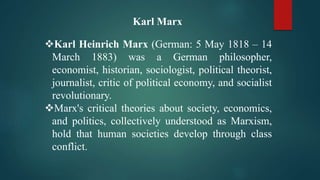

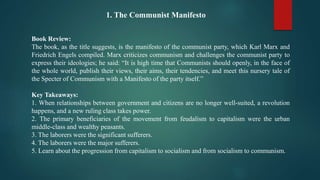
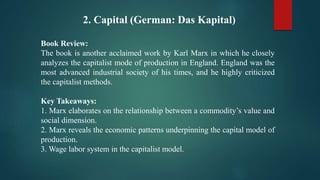
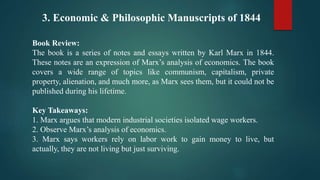
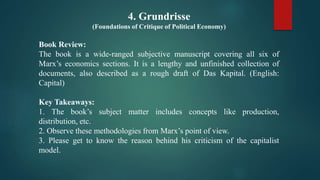
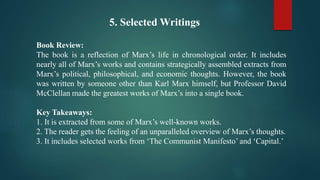
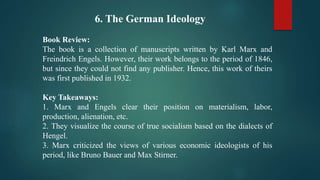
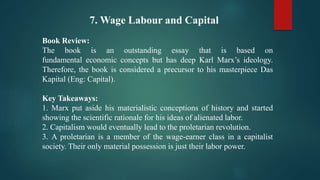

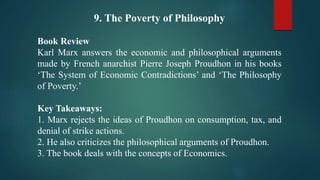
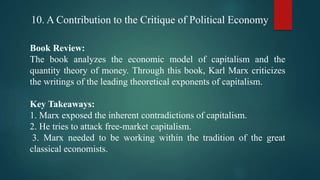
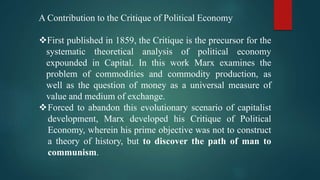
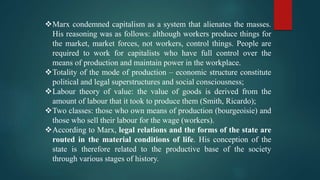
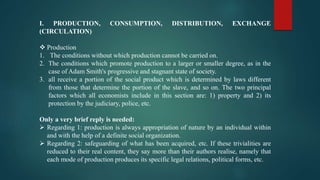
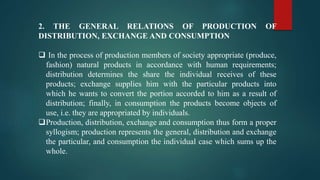
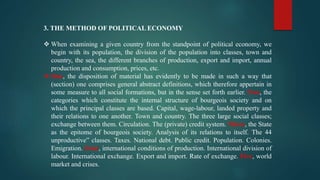
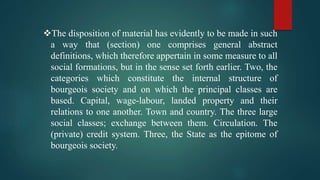
![4. PRODUCTION
Means of Production and Conditions of Production. Conditions of Production and
Communication. Political Forms and Forms of Cognition in Relation to the Conditions
of Production and Communication. Legal Relations. Family Relations:
1. War develops [certain features] earlier than peace; the way in which as a result of war,
and in the armies, etc., certain economic conditions, e.g., wage-labour, machinery, etc.
2. The relation of the hitherto existing idealistic historiography to realistic
historiography.
3. Secondary and tertiary phenomena, in general derived and transmitted, i.e., non-
primary, conditions of production. The influence of international relations.
4. Reproaches about the materialism of this conception; relation to naturalistic
materialism.
5. Dialectics of the concepts productive power (means of production) and relations of
production, the limits of this dialectical connection, which does not abolish the real
differences, have to be defined.](https://image.slidesharecdn.com/karlmarx-230506073337-981f13dc/85/Karl-Marx-pptx-20-320.jpg)
